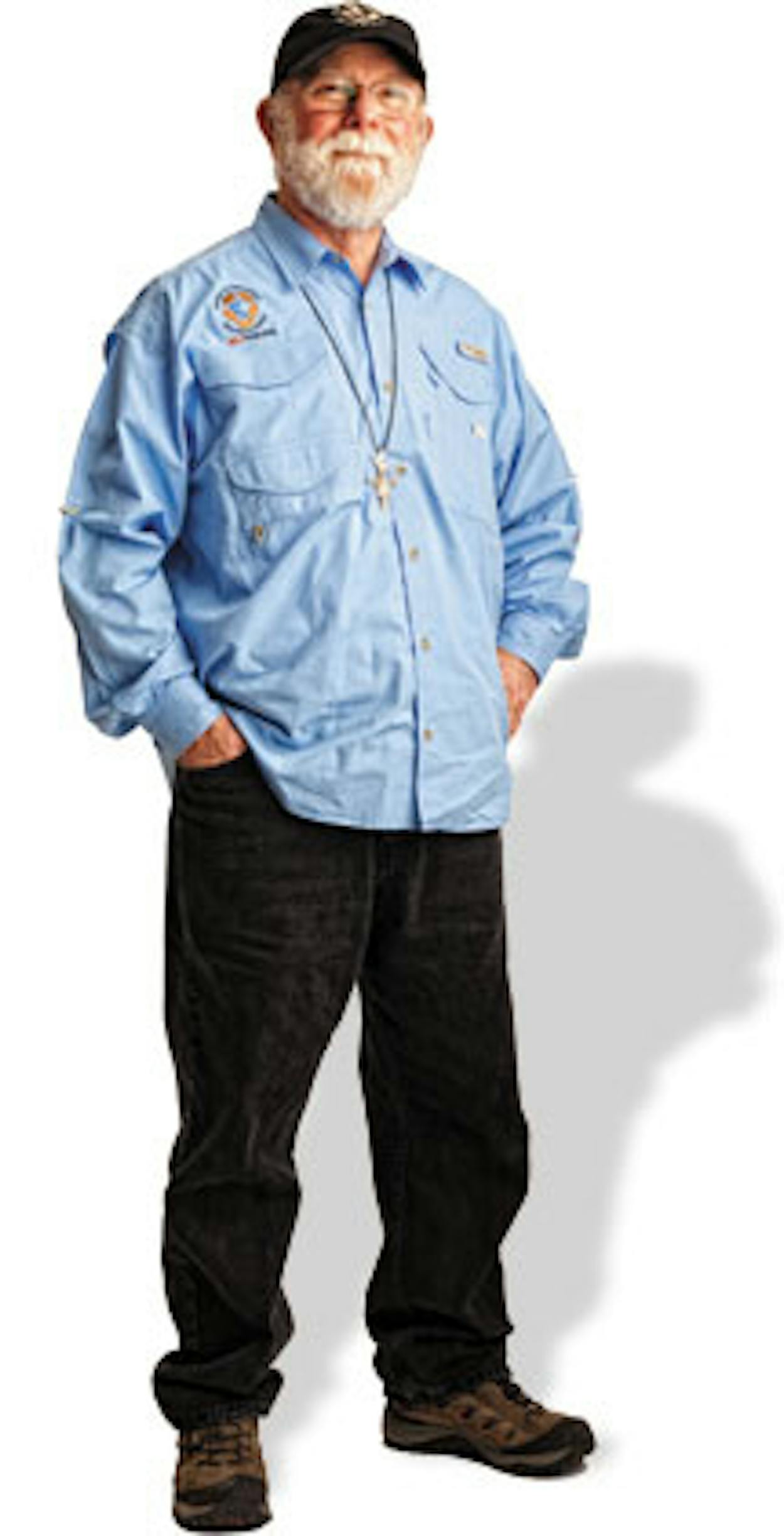NAME: Alan Graham | AGE: 54 | HOME: Austin | QUALIFICATIONS: President and co-founder of Mobile Loaves & Fishes, a nonprofit organization that distributes food and clothing from trucks in six cities across the country, including Austin and San Antonio / Is spearheading a new effort called Habitat on Wheels to provide a low-cost RV community for the homeless in Austin
• I used to be in real estate. But in 1998 a friend told me about some churches in Corpus Christi that were pooling their resources to take food to people on the streets. All of a sudden, the image of a catering truck came to mind. The idea just wouldn’t go away.
• I told one of my buddies about the possibility of serving people from trucks. “I think we could buy a junker for about fifteen hundred dollars and just tender-loving-care-it into shape,” I said. Before we knew it, we’d raised about $25,000. At that point you’re not buying a junker. We bought truck number one, which we still have.
• We made our first run in April 1999. We now have eighteen trucks and some 13,000 volunteers. We’ll serve about 600,000 meals this year.
• Every night we hit parks, street corners, shelters, housing projects, weekly-rate motels, campsites, you name it. There are no preplanned routes. We pick a destination and feed people along the way.
• When we pull up, we’ll ask, “What would you like, a peanut-butter-and-jelly sandwich or a ham-and-cheese sandwich? What kind of chips?” The ability to choose, say, between plain potato chips and Doritos is pretty powerful.
• I let people look through our clothes supply themselves. I’ll open the truck and say, “Have at it.” I’m just not into shopping. Other volunteers like to help in detail: “What are you looking for? What size do you wear?”
• Socks. Always the first thing to go. The second-most-popular item? Eggs.
• Food and clothing are merely our conduit. The reality of what we do is connect, human to human.
• When society tries to institutionalize homelessness into “They’re choosing to be lazy and just stand on a street corner and fly a sign,” it allows you and me to abdicate our responsibility to do anything about it. The truth is often the exact opposite.
• One night we had a couple volunteer with us for the first time. It’s raining and cold. They’re encountering children, seeing things they didn’t know existed in their community. At our last stop, there’s a homeless woman in a wheelchair who was a thalidomide baby. Thalidomide was a drug given for morning sickness in the late fifties and early sixties, and one of the bad, bad side effects was babies being born with flipper-like arms and legs. We found her on the street, freezing, and we got her a hotel room until we could find her a more permanent place to stay. Afterward, I asked the couple what they’d thought of their first run. The guy answered, “This is the best night of my entire year.”







